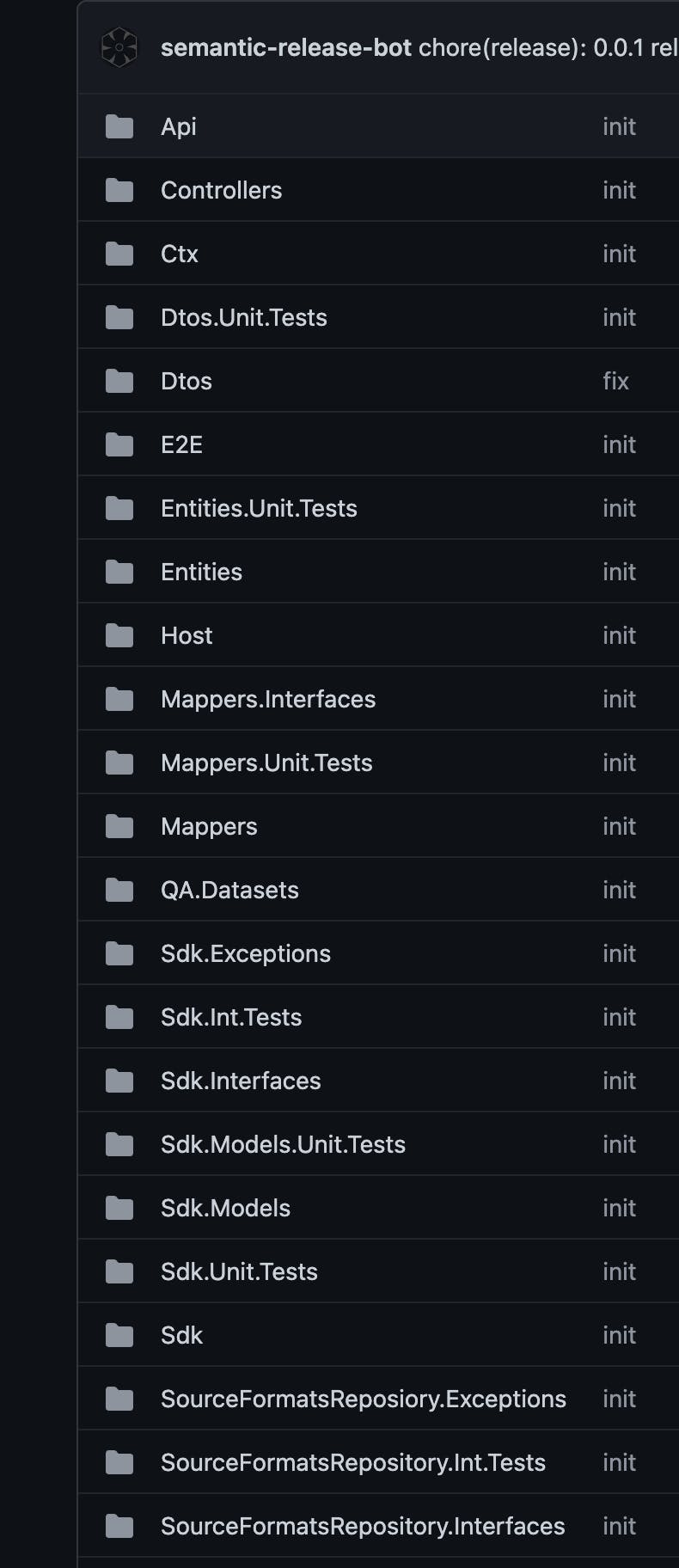Why do I create my own code generator?
This article is part of a series about the code generator. Other posts in this series can be found here!
The architecture of the Encyclopedia Galactica platform, we can say that it is a platform, is a microservices architecture. Or something like that -ish...

A single service's source code looks like the screenshot below.
In short, a crapload of projects. Even if I put interfaces, exceptions and implementations in a single project I'll have 5-10 with a nice amount of boilerplate. For example:
dtos
dto tests
client
client tests
client models
client model tests
controllers
All of the above is just boilerplate and can be generated from the information available in the endpoint, implemented by a single service, OpenApi specifications.

But, why I do make one?
The one I know, openapi-generator, cannot do the Dto and controller part and I don't like the output. I worked with its fork previously and I didn't like it.
I make one because it is an excellent opportunity for extra experience. Transforming the information from an OpenApi file to another format and structure which eventually will be generated to source code requires:
a scheduling problem,
a lot of work with data structures,
a decent understanding of the generated language syntax,
a decent amount of design decisions,
crazy amount of testing.
The third reason is that it will be written in C# and not java.

The fourth reason is that I can say: "I wrote a source code generator.". It sounds way better than "I implemented a controller."
What will be generated?
I'm going to generate a client library, an sdk, that makes it possible to communicate with the Rest endpoint comfortably. The idea is that the application, a Blazor UI, using the Sdk has to populate an object (a type-specific RequestModel) with the necessary data, pass it to the Sdk and call the necessary method to fire the communication with the endpoint. The result is a type specific ResponseModel. We used a similar pattern at IBM, the idea comes from there.
The Document Service E2E tests are good examples.
[Fact]
public async Task Return_201_WhenCreatingNewSourceFormatNode_AndReturnResult()
{
// Arrange
string name = "asd";
SourceFormatNodeAddRequestModel requestModel = new SourceFormatNodeAddRequestModel.Builder()
.SetName(name)
.Build();
// Act
SourceFormatNodeAddResponseModel responseModel = await SourceFormatsSdk.SourceFormatNode.AddAsync(requestModel)
.ConfigureAwait(false);
// Assert
responseModel.Should().NotBeNull();
responseModel.IsOperationSuccessful.Should().BeTrue();
responseModel.Result.Should().NotBeNull();
responseModel.Result.Should().BeOfType<SourceFormatNodeDto>();
responseModel.Result.Id.Should().BeGreaterThan(0);
responseModel.Result.Name.Should().Be(name);
}
Data Transfer Objects
The Dtos are the contract between the endpoint and its consumers. These are described in the OpenApi specification, so they can be generated.
Data Transfer Object tests
I'm one of those who believe in tests against plain objects. If anything changes I want to know about it.
Controllers
This information is also available in the OpenApi file, so it will be generated. I tend to put each controller method in its own file.
Sdk Client for the endpoint
The supported operations are described in the OpenApi specification and the endpoint-specific part of the Sdk Client can be generated. The common part of the Http communication with the endpoint can be generalized and put in an Sdk Core library and distributed as Nuget package.
Sdk Client for the endpoint tests
These unit and integration tests can be generated.
Sdk Models
Every operation has its own request and response model. Dead boring boilerplate and must be generated.
Sdk Models' unit tests
Way more dead boring boilerplate than the previous one. However, these are important tests. But, they can be generated.
What the code generator doesn't do?
The OpenApi specification offers some magic... Some absolute magic...

The keywords "oneOf", "anyOf" and "allOf" are gates to a specific level of hell. These are the keywords I'm not going to put into my OpenApi specification files. And when I have to I'll put the task aside for a few days and reconsider what I want to do. The generator will not cover these cases. This is one of the limitations.
The second limitation is that it will generate C# code only. I do not have any plan to call the system from any other language.

